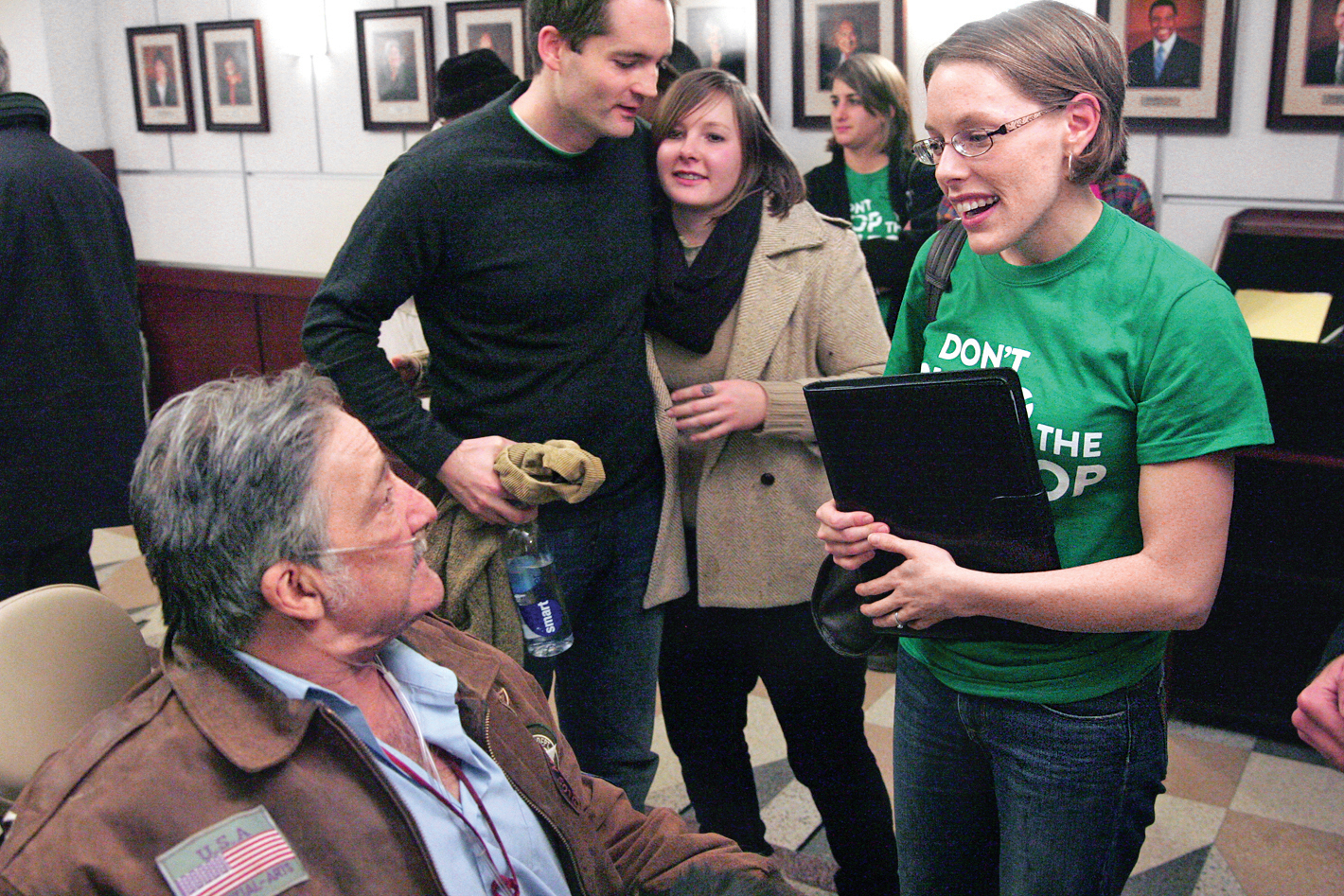HOW THEY VOTEDA "yes" vote was to approve the Chattanooga Village rezoning proposal.• Jack Benson - No• Carol Berz - Yes• Russell Gilbert - Yes• Pam Ladd - No• Andrae McGary - Yes• Peter Murphy - No• Manny Rico - No• Sally Robinson - No• Deborah Scott - Not presentWHAT THEY SAIDPam Ladd: "Those who contacted me don't want it to go forward."Carol Berz: "There's only so much interference we can do with people's property rights."Manny Rico: "I believe in property rights, but what's it zoned for? When you start rezoning and affecting other people, you have to think about it."Andrae´ McGary: "We must do for one what we do for all. We must be fair."Jack Benson: "We did this on another project. We did zoning and didn't get any residential."
Critics of a plan to build a controversial $100 million Hixson apartment and commercial project celebrated victory Tuesday after the City Council turned back the proposal.
"I'm ecstatic," said Ellie Wallis, who lives in a neighborhood near the site, calling the panel's 5-3 vote against the project "a prudent decision."
Developer Duane Horton expressed disappointment with the vote, having claimed the Chattanooga Village project on 190 acres at state Highway 153 and Boy Scout Road could create 2,000 jobs and spur $2 million annually in real estate taxes.
"We believe the plan was the best option for the landowner," he said. Horton said he doesn't have "a plan B," but that he'll go back and evaluate options for the site with owner Jack Lonas.
Horton said the nearly year-and-a-half fight to rezone the tract drew what he termed "special interests."
The North Chickamauga Creek Conservancy hired Chattanooga attorney Joe Conner to help voice its case, while Northgate Mall owner CBL & Associates Properties Inc. also weighed in.
Gregory Vickrey, the Conservancy's executive director, cited the community's effort to battle the proposal, which called for building up to 280 apartments, 500,000 square feet of retail space and 250,000 square feet of offices.
"My reaction is relief," said Vickrey, whose group worried about stormwater runoff on the hilly site.
Tuesday night in a packed chamber, the City Council spent nearly an hour and a half hearing comments from supporters and opponents - the second time in two weeks after deferring the rezoning case.
At the end of the discussion, council members offered two competing motions to approve and deny the project.
Council member Andraé McGary, who voted to endorse the rezoning, called it a matter of fairness, adding that the proposal met the city's requirements.
"We must be fair," he said. "I'd hate for someone to raise or lower the bar on me or you."
But panel member Manny Rico, who voted against the project, said he believes in private property rights, though changing the zoning on a parcel creates "a different animal."
"When you start rezoning and affecting other people, you have to think about it," he said.
Pam Ladd, in whose district the site is located, said before the vote that she was against rezoning the tract.
Ladd said people who have contacted her didn't want the project to go forward.
"I'll be voting no on this," she said.
Councilman Jack Benson, who also voted no on the proposal, said he was for phasing the project. He said another development that the council earlier approved in East Brainerd was to have housing, but only commercial space has been built so far.
Conner had argued the developer could do whatever he wanted after receiving rezoning on the site, which is now zoned residential.
He also argued that flooding already exists on Boy Scout Road and there's no assurance that couldn't worsen.
Conner also said the project could fail.
"It could be a boondoggle," he said, arguing that critics were never allowed to see a market study of Chattanooga Village.
Councilwoman Sally Robinson asked if 68 acres slated to be kept green on the site had a conservation easement that would have assured the land is preserved. Horton said not yet, but he planned to do so.
Still, Horton laid out a plan for the council that called for building the apartments first, then retail space and the offices.
He said no public money was required, that the hilltop on the site would be preserved, and he spent the last couple of weeks agreeing to added conditions to make the project more palatable to critics.
Conner said Horton agreed to "fluffy, nice" conditions, but wouldn't give in on the things which the Conservancy felt most strongly about.

